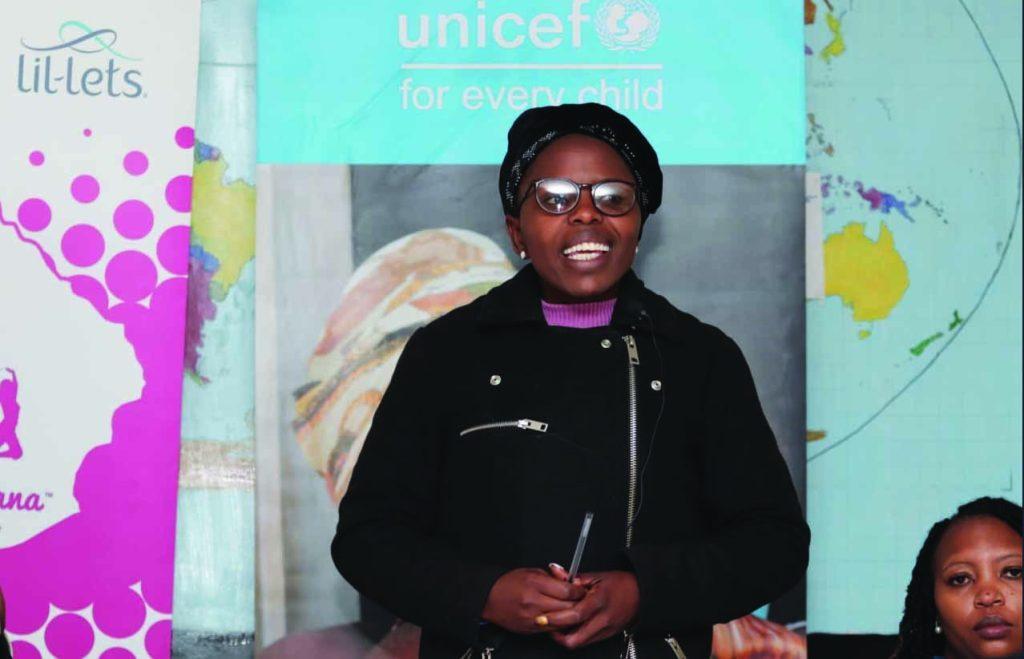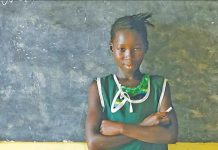Africa-Press – Lesotho. POVERTY, neglect, and famo gangs are the unholy trinity that has beset children in Ribaneng High School and surrounding villages. The high school, serving at least 10 villages, has only 100 students because other children have either not enrolled or dropped out.
Those who still attend school have grades lower than their peers in other schools in the districts and nationally. Teachers say children in Ribaneng leave school to look for jobs because many of them have taken the role of parents who are either dead or have left for South Africa.
Abject poverty has beleaguered many families in the area, mostly because young people who can work are either dead or have left to search for jobs in town or South Africa. Many of those who have left no longer come back and have abandoned their children, leaving them in the care of elderly grandparents.
When the families are not battling to fend for themselves they are dealing with famo music gangs that routinely unleash violence on them or lure their children to join their ranks.
Puleng Nkaleche, the Ribaneng High School principal, says students still attending classes do not pay school fees. She says when she presses the parents for payment they only manage to pay up to M100.
The set annual fee for the school is M1 500, an amount Nkaleche says most of the parents cannot afford. Nkaleche says she ends up allowing the children to continue coming to school “or else the school will have to close”.
“Many of the children I have in this school are orphans and are raised by grandparents or other relatives,” Nkaleche says.
“I doubt that they have breakfast when they leave their homes because at lunchtime we send them back home to eat as we no longer serve meals at school.
“Even when we send them home we have no guarantee that the children have anything to eat there. This pains my heart. It is beyond me as a person. ”
Nkaleche, with a quavering voice, says in the past the school used to provide meals but they have since stopped because parents do not pay. She says she finds it hard to exclude children for tuition arrears.
“It goes against the person I am inside,” she says, adding: “I look at the child and see the helplessness right in their eyes.
“Sometimes I lock myself in the office and cry, alone.
She says what disheartens her the most is that some of the fathers of children who are not paying fees come from South African mines, illegal and legal, every December to show off by throwing parties and drinking alcohol.
She says such fathers wear expensive clothes and drive cars but do not take care of their children. She says many boys from her school have dropped out in the past five years and joined the illegal mining in South Africa, coming back to boast of their attained riches.
“This has sowed the wrong seed in the minds of many boys here, they no longer see why they should continue with school when there is evidence that they can make it in life without education.
Nkaleche says this year alone five children have dropped out of school while many others have been dispirited to the extent that they often dodge classes for petty reasons.
“There are no parents at home to coach them for many of them come from child-headed families”. Going around in the village on a rainy Thursday last week, thepost met three young boys who were not at school.
Clad in blankets, gumboots and balaclavas, the children could not explain why they were not in school. Nkaleche talks about a 15-year-old girl whose mother left her with a two-year-old sickly sibling.
“The girl ended up dropping out of school for good.
” Nkaleche says she tried asking for help from the police, who said she should tell the girl’s mother to go to their station.
“Where should I get that parent? If I had access to her I would go straight to her instead of going to the police.
I went there only because she had abandoned the children. ” Nkaleche says her staff often contribute money from their own pockets to buy school uniforms for some students.
The science teacher at the school, Tokelo Motsomi, says they are alarmed by the level to which famo gangs influence their students and the youths in the area.
Motsomi, born and raised in Ribaneng, says gang wars associated with famo and illegal gold mining in South Africa have left deep wounds on the children.
He recalls when two young girls from a nearby Ribaneng Primary School fought during the school educational project when their teacher had put them in the same group for discussion.
The children, Motsomi says, fought because a relative of one had allegedly shot and killed the other’s father. “You can imagine how boys behave because of gang wars if it affects even girls to this level,” he says.
“Our boys’ dream here is not to go to school to get enough education to make a living but rather to grow up so that they join famo gangs and take revenge for their slain relatives,” he says.
Ribaneng village, sitting on the foot of Thaba-Bobe Mountain, flanked by Mount Lekhache in the west and Mount Mahlatsa in the east, is home to three vicious famo gangs fighting for power.
The villages, some 105 kilometres south of Maseru deep in the rural areas of Mafeteng district, have rich loam soils and an abundance of ground water but there is no one to still the land.
Most families in this area cannot afford seed and fertiliser. And even if they put something on the ground there is no one to work the land because those who head families are either the elderly or too young.
Ribaneng High School itself has over 10 acres of land in which it grows food for the children but due to weather inconsistency caused by climate change the harvest has been poor for the past two years.
“We are unable to feed these children despite that we have land and water,” Nkaleche says.
She is calling on people of goodwill to help the school, especially with counselling services for boys who are lured into gangsterism once they drop out and join traditional initiation schools.
She also calls for help to support income-generating projects that can show boys that they can make it in life without joining illegal miners in South Africa. The school, she says, has enough land for such projects.
For More News And Analysis About Lesotho Follow Africa-Press






